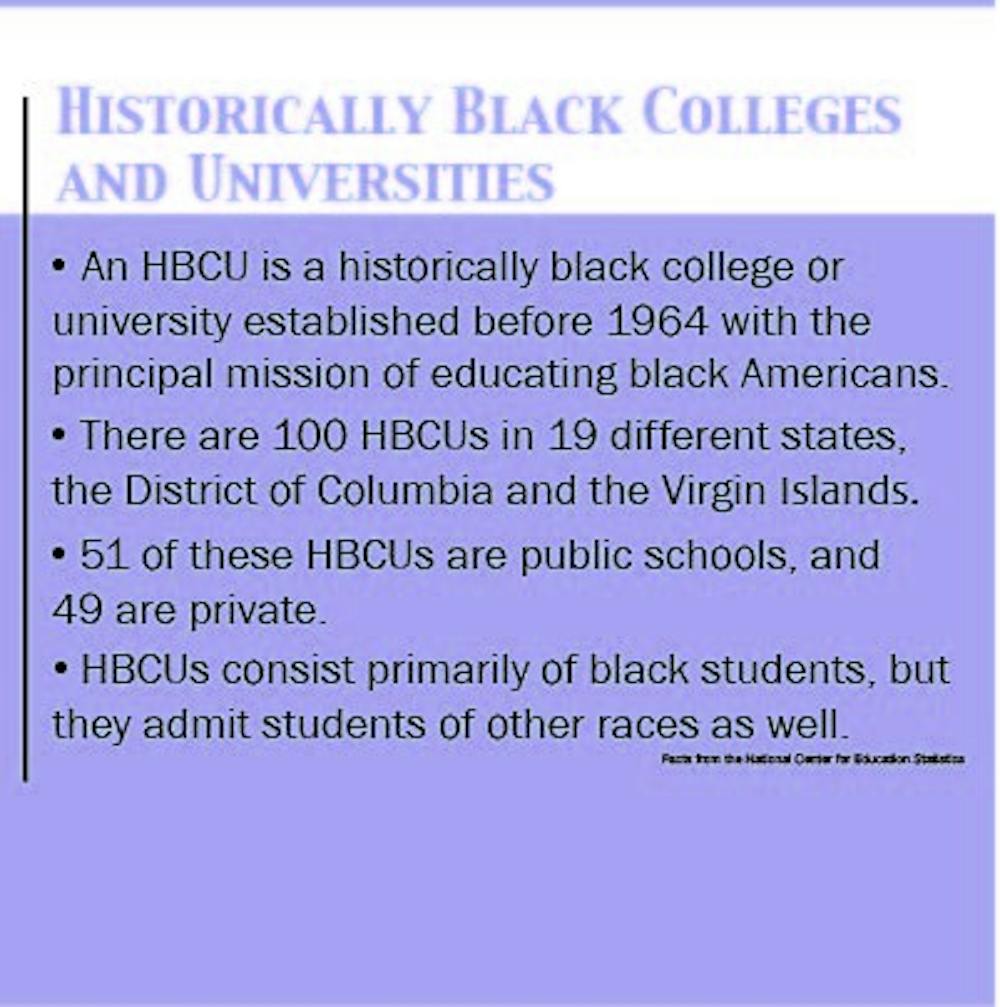When Geleana Drew Aston made plans for life after high school, she only had one goal: to move away from home.
Neither she nor her parents planned on her attending a historically black college or university (HBCU). Now a doctor of philosophy, she can speak of her diverse experiences at an HBCU, a predominately white institution (PWI) and a Hispanic serving institution (HSI). Last week, she brought her story to Elon University.
“True Life: I’m Thinking HBCUs for Grad School” was one of five programs hosted by Elon University’s chapter of Alpha Kappa Alpha Sorority, Inc. (AKA) Feb. 23 in Oaks Commons.
The event was arranged similarly to a college fair. Students walked around to tables run by AKA sisters who had done significant research on graduate programs at various HBCUs. Institutions covered included Hampton University, Howard University and Tuskegee University.
This was followed by a discussion led by Aston, a member of AKA at East Carolina University.
“She told her personal stories and gave insight to the pros and cons of attending a PWI, HBCU and HSI,” said junior Cassidy Stratton, a member of AKA at Elon.
Aston started by talking about her positive graduate experience at North Carolina A&T State University, an HBCU she attended after getting her undergraduate degree from East Carolina, a PWI.
“I think that us being black or African American was a commonality, a starting point for our relationships to blossom,” she said. “At an HBCU, that is appreciated in a different way than it is at PWIs.”
She believes attending an HBCU is a viable option for black students today, even though only 9 percent of black students enrolled in college attend an HBCU as of 2011.
“[Now, if] I were a student graduating from high school, I would be going to an HBCU,” she said.
At the same time, Aston appreciated her undergraduate experience at a PWI. She feels it gave her the understanding to develop an appreciation for diversity.
“If I had gone to an HBCU for undergrad, I honestly don’t know that I would have the attitude I have about culture differences,” she said.
Aston admits HBCU graduates often have not been prepared for the lack of diversity they are almost guaranteed to encounter upon entering their career fields.
“There needs to be a different type of preparation for the reality check that’s going to happen,” she said. “If you went to a black high school, then you went to a black college, then you graduate, and you’re the only black in your office or in your department, that’s a culture shock.”
Despite this, she still believes black communities need the option of a supportive institution.
“In today’s time, with the issues that exist for black people, HBCUs need to be here,” Aston said. “We need to stop and think about if we are contributing to our max potential when it comes to our surrounding black communities. Sometimes the only thing separating the institution and the community is a fence.”
Although the conversation seemed aimed at students currently attending HBCUs, Aston emphasized that HBCUs can benefit from the help of all black Americans and that the problems HBCU schools face can turn into problems for black communities, as well. She urged Elon students to support HBCU community events.
“When more and more people support the institution’s efforts for community support, it helps illuminate the good of the institution,” she said.
Stratton agreed.
“Historically black colleges and universities were created as gateways to provide education to black people when other institutions would not permit their enrollment,” she said. “Although becoming more diverse over the years, HBCUs still foster development, especially in the black community.”
Since she has attended three schools that all offered different ranges of diversity, Aston has heard the full variety of misconceptions students have about the differences between PWIs and HBCUs.
“Students think that, when you come to an HBCU, the educational rigor will be easier, that you don’t have to respect some of the faculty because the credentials are not equal, that you’ll have issues with financial aid,” Aston said. “These are just some of the crucial conversations that exist.”
Aston said combating these negative, false stereotypes requires black students to acknowledge and appreciate the equally valuable experiences that can be had at both PWIs and HBCUs.
“Just as you all can learn from them, they can learn from you,” she said. “It starts with an open mind.”


